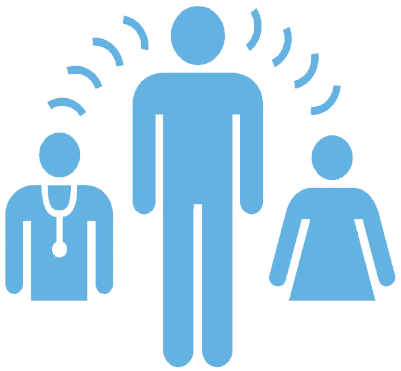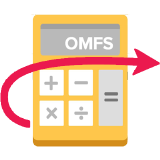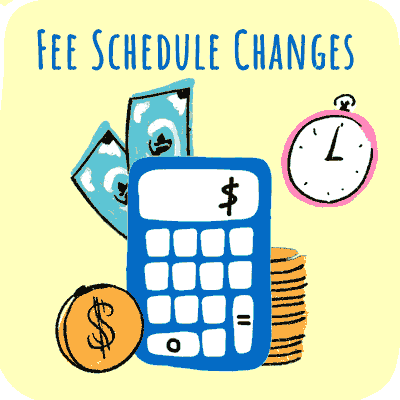Interpreter Fee Schedule: An Imperfect Step in the Right Direction

California’s Division of Workers’ Compensation (DWC) proposed new interpreter fee schedule regulations this week. The changes would create a uniform fee schedule, replacing the more haphazard “market rate”-based current system. The draft rules also require the use of more highly qualified “certified” interpreters whenever possible.
The proposed rules may reduce the friction that characterizes billing for interpreter services, but come with complications of their own. The DWC is accepting comments on its public forum until 5pm Friday, April 13.
Certified vs Provisionally Certified Interpreters
The proposed rules would establish a fee schedule based on the federal court system’s payment structure for interpreter services. Significantly higher reimbursements will apply to services from certified — as opposed to provisionally certified — interpreters.
Service |
Certified Interpreter |
Provisionally Certified Interpreter |
Hearing or Deposition, Half Day |
$225.00 |
$141.00 |
Hearing or Deposition, Full Day |
$448.00 |
$232.00 |
Additional Hearing During Half Day Period |
$ 191.25 |
$105.75 |
Additional Hearing During Full Day Period |
$336.00 |
$174.00 |
Medical treatment or Medical-legal evaluation |
$86.50/hour |
$57.75/hour |
The regulations consider an interpreter certified whose name appears in the State Personnel Board interpreter page or the California Courts interpreter page.
Above all, the regulations stress the importance of utilizing certified rather than provisionally certified interpreters. Proposed language for California Code of Regulations (CCR) 9931 state:
Certified interpreters...shall be used, except when a certified interpreter cannot be present...after exhausting the selection procedures of this section.
The party responsible for requesting the interpreter differs according to the scenario (more on that below). Said party must make every effort to to produce a certified, not provisionally certified, interpreter — and that effort is subject to strict standards.
Specifically, the responsible party must contact at least 3 interpreter services to request a certified interpreter and document those contacts.
The new rules would require interpreters to present their certification credentials and photo identification at hearings, depositions, medical treatment appointments, and medical-legal evaluations.
Who Brings the Interpreter?
As to who is responsible for producing the interpreter, the the proposed regulations are complex. The responsible party would vary depending on the setting:
- For hearings, the injured worker would be responsible for arranging the interpreter
- For depositions, the party noticing the deposition would be responsible
- For medical-legal evaluations, the employer would be responsible
For medical treatment appointments, it gets even more complicated. The responsibility for arranging the interpreter depends on the MPN, and the availability of interpreters within designated geographical distances:
MPN Status |
Party Responsible for Arranging Interpreter |
Injured worker not covered in MPN, or MPN does not include ancillary providers |
Injured Worker |
Injured worker covered in MPN with Ancillary Services, interpreter available |
Employer (interpreter selected by injured worker from employer list) |
Injured worker covered in MPN with Ancillary Services, interpreter not available |
Injured worker |
The regulations also include contingencies for responsible parties failing to arrange for the interpreter, or for multiple parties arranging for multiple interpreters, as well as consequences for non-compliance.
Goodbye “Market Rate” — Billing for Interpreter Services
As the above rates for interpreter services reveal, the ambiguous “market rate” would no longer be the standard by which interpreter services are billed. Instead, the proposed regulations include a complete standardized fee schedule.
The regulations include a total of 14 billing codes for interpreter services. 10 codes will apply to various interpreter services at hearings and depositions. For medical treatment appointments, providers will have two billing codes, one each for certified and provisionally certified interpreter services. The same holds true for medical-legal evaluations.
A complete and compliant bill for interpreter services will need to include:
- Interpreter name/certification number/certification organization
- Injured worker name/claim number/date of interpreter service
- Type of interpreter service (setting, certified or provisionally certified)
- Language interpreted
- Billing code
- Time spent on interpretation
- Amount billed
- Number of interpretations (if applicable)
- Signed declaration by the interpreter
- Proof of certification (at employer request)
The usual timeframes for original bill submission, response, and appeal will continue to apply.
The full text of proposed regulations is available here. We encourage all stakeholders to submit their comments to the DWC by 5pm on April 13.
Ready for workers’ comp billing to be way, way easier? DaisyBill’s Billing Software generates compliant RFA’s, original bills, and second review requests quickly and easily. Take the hassle out of workers’ comp: schedule your free demonstration today.
MAKE BILLING EASIER
DaisyBill provides content as an insightful service to its readers and clients. It does not offer legal advice and cannot guarantee the accuracy or suitability of its content for a particular purpose.




